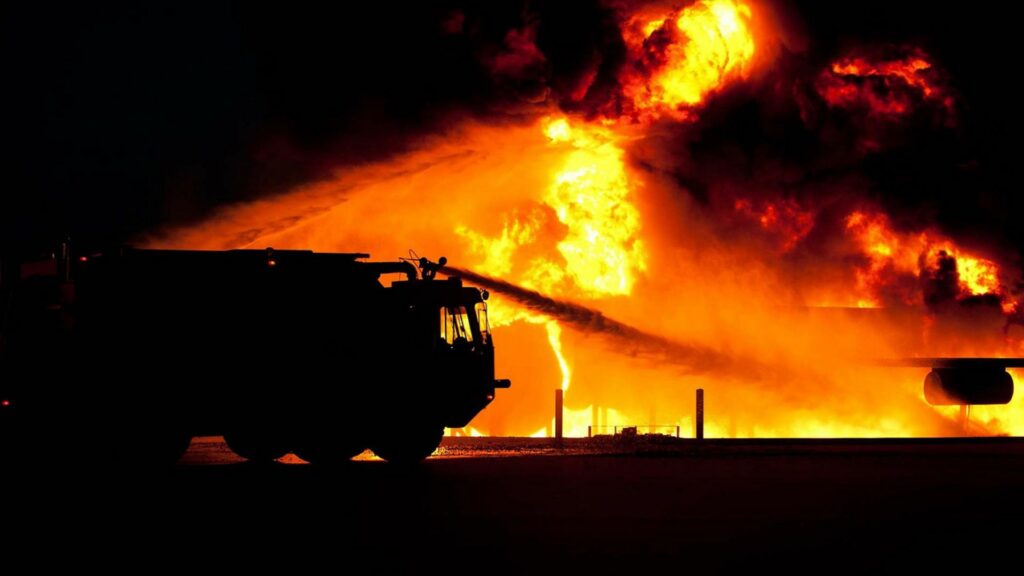Large areas of the Mediterranean are sweltering under an intense summer heatwave as firefighters battld to put out blazes across the region. In Algeria, at least 34 people have died. In Croatia, flames came within 12 kilometres of the medieval town of Dubrovnik late on Tuesday.
Greece has been particularly hard hit, with authorities evacuating more than 20,000 people in recent days from homes and resorts in the south of the holiday island of Rhodes.
Close to 3000 tourists had returned home by plane as of Tuesday, according to figures from the Transport Ministry, and tour operators have cancelled upcoming trips.
Two firefighting pilots died when their plane, which had been dropping water, crashed on a hillside close to the town of Karystos on the island of Evia, east of Athens.
Italy suffered a twin pounding from the elements when severe storms battered the north, killing a woman and a 16-year-old girl scout, while southern regions sweltered. In the south, a bedridden 98-year-old man died when fire swept through his home.
Fires also swept across Portugal and Spain’s Gran Canaria.
In the United States, the ocean waters around South Florida soared to typical hot-tub levels this week, according to government data. A weather buoy in the waters of Manatee Bay recorded a high of 38.44C on Monday afternoon, according to National Oceanic and Atmospheric Administration data. On land, heat warnings were issued for stretches of the desert southwest, in central Texas and north into the Midwest.
Extreme weather throughout July has caused havoc across the planet, with record temperatures in China, the US and southern Europe sparking forest fires, water shortages and a rise in heat-related hospital admissions.
Without human-induced climate change, the events this month would have been “extremely rare”, according to a study by World Weather Attribution, a global team of scientists that examines the role played by climate change in extreme weather.
The heat, with temperatures topping 40C, is well in excess of what usually attracts tourists who flock to southern European beaches.
The high temperatures and parched ground sparked wildfires in countries on both sides of the Mediterranean.
Several dozen firefighters were using aircraft to battle a wildfire that had broken out close to Nice international airport in southern France.
In north Africa, Algeria was fighting to contain devastating forest fires along its Mediterranean coast in a blaze which has already killed at least 34 people. Fanned by strong winds, fires also forced the closure of two border crossings with neighbouring Tunisia.
Scientists have described extreme heat as a “silent killer” taking a heavy toll on the poor, the elderly and those with existing medical conditions.
Research published this month said as many as 61,000 people may have died in Europe’s sweltering heatwaves last summer, suggesting preparedness efforts are falling fatally short.
The heat has also caused large-scale crop damage and livestock losses, the World Weather Attribution scientists said, with US corn and soybean crops, Mexican cattle, southern European olives as well as Chinese cotton all severely affected.
Residents of Milan were surveying the mess after the dramatic overnight storm and winds of over 100 kilometres per hour.
Source: AAP









